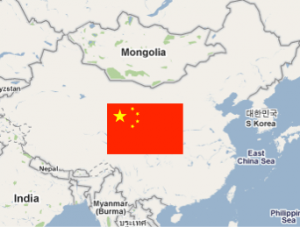Deadline Threatens Google Maps’ Existence In China
Maybe the sequel to John Adams’ seminal modern opera “Nixon in China” should be called “Google in China.” Its on-again-off-again dance with the world’s largest and most strictly controlled internet market is the stuff of melodrama. Renewing Google Maps’ License The latest episode in the ongoing saga poses the question whether Google will be able […]
 Maybe the sequel to John Adams’ seminal modern opera “Nixon in China” should be called “Google in China.” Its on-again-off-again dance with the world’s largest and most strictly controlled internet market is the stuff of melodrama.
Maybe the sequel to John Adams’ seminal modern opera “Nixon in China” should be called “Google in China.” Its on-again-off-again dance with the world’s largest and most strictly controlled internet market is the stuff of melodrama.
Renewing Google Maps’ License
The latest episode in the ongoing saga poses the question whether Google will be able to renew its mapping license there. Google’s right to exist as a search engine in China continues through 2012. However distinct product Google Maps must comply with new, more stringent “national security” considerations to continue to operating.
There’s a March 31 (tomorrow) deadline looming. According to Bloomberg:
China introduced a new licensing system for Internet mapping services in May to “address illegal practices” and an “inadequate awareness of national security,” the official Xinhua News agency reported March 21. Since 2008, online mapping services have committed more than 1,000 violations including unauthorized disclosure of confidential information and mistakes in drawing the country’s border, Xinhua reported.
As of mid-February, the bureau had granted licenses to 105 websites for mapping services, including Baidu, Sina Corp., a Nokia Oyj joint venture and China Mobile Ltd., Xinhua said. The bureau has pledged to close unapproved websites.
The Bureau said applications for license must be made by March 31, to avoid “administrative actions” it will take by July 1. The Bureau this month vowed “resolute punishment for serious violations,” such as closing websites, Xinhua said.
Presumably if Google didn’t meet the requirements — vague as they appear to be — it would no longer be able to operate Google Maps in the country.
Tense Relationship with Controlling Government
Google recently accused the Chinese government or its surrogates of hacking into Gmail to try and get information about Chinese activists and dissidents who may have been using the email system to organize anti-government protests in parallel with the wave of democratic unrest sweeping the Middle East.
China has officially denied the Google claim. But China’s government has been definitively shown to be behind the original Gmail hacking episode that precipitated Google’s decision to no longer comply with Chinese censorship rules. The Chinese are also heavily involved in internet-based espionage efforts targeting Western companies and governments, including the US.
In addition to the government’s tense relationship with Google’s search engine, China blocks YouTube. It also blocks Facebook and Twitter, sites that could be used for popular organizing or disseminating anti-government information.
Baidu is the dominant search engine in China, with a 75 percent share. And recently one of Google’s key partners in China, the portal Sina, dropped Google as its search engine in favor of its own (mystery) search technology.
Related Entries
- China Renews Google License To Operate In China
- Impact Of Leaving China? Google Loses Paid Search Share
- Google Stops Censoring In China, Hopes Using New Domain Meets Legal Requirements
- How Google Could Have Bought Baidu And Other Fascinating Details About China’s Largest Search Engine
- Google Looks To Shutter China Search Operation As Talks With Government Reach “An Impasse”
- Can Google Stay In China And Still Save Face?
- Google Just Says No To China: Ending Censorship, Due To Gmail Attack
- Google Can’t Seem to Quit China
- Google’s New China Plan: Target Display Advertisers, Report Says
- Google Makes Modest Comeback In China
- China Launches New Censored Search Engine To Compete With Baidu
- Chinese Hacking Google Again To Stop “Jasmine Revolution”
Contributing authors are invited to create content for Search Engine Land and are chosen for their expertise and contribution to the search community. Our contributors work under the oversight of the editorial staff and contributions are checked for quality and relevance to our readers. The opinions they express are their own.
Related stories
New on Search Engine Land